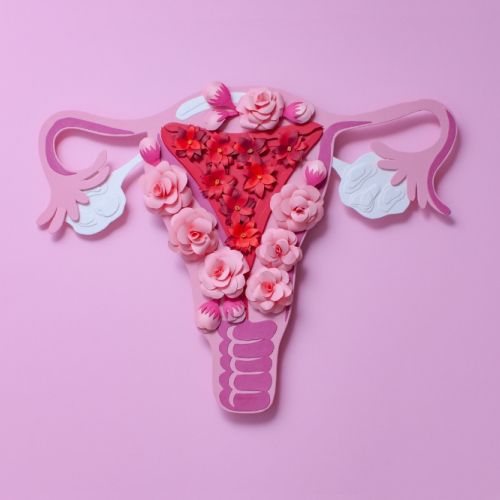What Foods Help With Fertility?

If you’re struggling with infertility, it’s natural to want to explore every possible method of improving your chances of conceiving a child. There’s no one food that can magically correct problems with infertility, but foods and lifestyle choices can have a significant impact on reproductive health, and this is true for both men and women. Spend some time considering your food choices. What foods help with fertility?
Complex Carbs
Complex carbohydrates are those that contain fiber, such as beans, whole grains, fruits and vegetables. They’re digested slowly and which means that blood sugar is affected gradually, and they help you to feel full longer. Including complex carbs in your diet is a much healthier choice than carbs that are highly processed such as white sugar and white rice. Refined carbs can cause spikes in blood sugar and insulin, and high insulin levels may inhibit ovulation.
Fruits and Vegetables
Include plenty of fruits and vegetables in your diet. Whole foods are nutrient rich and are full of vitamins and minerals that the body needs. Choose fresh or frozen vegetables whenever possible rather than canned. Asparagus and kale are especially good choices since these vegetables include important nutrients that are essential to egg quality.
Free radicals are unstable molecules that can damage cells. Excess free radicals can be produced in response to environmental stressors such as pollution and cigarette smoke, and this can lead to oxidative stress, which can negatively impact fertility. Berries such as strawberries and blueberries contain natural antioxidants, which can help to combat oxidative stress.
Seafood
Seafood that’s rich in omega-3 fatty acids such as salmon is beneficial to your overall health, including your heart health and your reproductive health. Choose wild caught salmon whenever possible to avoid high mercury levels and food dyes that may be toxic. Oysters are another example of seafood that’s loaded with nutrients that are important for being able to conceive and to have a healthy pregnancy, such as zinc, vitamin B12 and iron.
Healthy Fats
Make sure your diet includes healthy fats from sources such as avocados, nuts and olive oil. Healthy fats can help to reduce inflammation, which may help to improve fertility. Monounsaturated fats from plant sources may lead to improved results from IVF.
Some fats aren’t as healthy as monounsaturated fats. Trans fats found in processed foods, margarine and French fries can have a negative effect on your health, and when trans fat intake is too high, it may contribute to infertility. Limit your intake of trans fats and whenever possible, replace trans fats with healthier fats such as canola oil, corn oil or olive oil.
Making healthy food choices is one thing you can do to try to help improve your fertility, but keep in mind that there are many possible causes of infertility and not all of them can be corrected with making better lifestyle choices. Reach out to the fertility experts at the Center for Reproductive Health to learn more about what foods help with fertility and to give yourself the best chance of having a successful pregnancy.
Eliran Mor, MD
Reproductive Endocrinologist located in Encino, Valencia & West Hollywood, CA
FAQ
What does a reproductive endocrinologist and infertility specialist do?
Reproductive endocrinology and Infertility is a sub-specialty of Obstetrics and Gynecology. In addition to managing medical and surgical treatment of disorders of the female reproductive tract, reproductive endocrinologist and infertility (REI) specialists undergo additional years of training to provide fertility treatments using assisted reproductive technology (ART) such as in vitro fertilization.
Reproductive endocrinologists receive board certification by the American Board of Obstetrics and Gynecology in both Obstetrics and Gynecology and Reproductive Endocrinology and Infertility.
When should I see an REI specialist?
In general, patients should consider consulting with an REI specialist after one year of trying unsuccessfully to achieve pregnancy. The chance of conceiving every month is around 20%, therefore after a full year of trying approximately 15% of couples will still not have achieved a pregnancy.
However, if a woman is over the age of 35 it would be reasonable to see a fertility specialist earlier, typically after 6 months of trying.
Other candidates to seek earlier treatment are women who have irregular menses, endometriosis, fibroids, polycystic ovary syndrome (PCOS), women who have had 2 or more miscarriages, or problems with the fallopian tubes (prior ectopic pregnancy).
What are the reasons we are having trouble conceiving?
Approximately 1/3 of the time cause for infertility is a female factor, 1/3 of the time a male factor, and the remaining 1/3 a couples’ factor.
At CCRH, we emphasize the importance of establishing a correct diagnosis. Both partners undergo a comprehensive evaluation including a medical history and physical exam.
Furthremore, the woman’s ovarian reserve is assessed with a pelvic ultrasound and a hormonal profile. A hysterosalpingogram (HSG) will confirm fallopian tube patency and the uterine cavity is free of intracavitary lesions. A semen analysis is also obtained to evaluate for concentration, motility, and morphology of the sperm.
Additional work up is then individualized to direct the best possible treatment option for each couple.
What is IVF? What is the process like?
In vitro fertilization (IVF) is the process that involves fertilization of an egg outside of a woman’s body.
The process starts with fertility drugs prescribed to help stimulate egg development. In your natural cycle, your body is only able to grow one dominant egg, but with stimulation medication we can recruit multiple eggs to continue to grow. After about 8-10 days of stimulation, the eggs are surgically retrieved and then fertilized with sperm in a specialized laboratory. Fertilized eggs are then cultured under a strictly controlled environment within specialized incubators in the IVF laboratory for 3-5 days while they develop as embryos. Finally, embryos (or an embryo) are transferred into the uterine cavity for implantation.
Should I have IVF?
Before deciding if IVF is the right choice, it’s important to sit down with an REI specialist to discuss available treatment options. For some people, other methods such as fertility drugs, intrauterine insemination (IUI) may be the best first choice treatment. At CCRH, we believe each individual couple is unique and not everyone needs IVF.
Is the IVF procedure painful?
While not painful, the fertility medications may some side effects including headaches, hot flashes, mood swings, and bloating. The injection sites may also bruise.
Will IVF guarantee a baby?
Unfortunately, no. Many people think once they start IVF it’s a matter of time that they will be pregnant and have a baby. But according to national statistics per the Society of Assisted Reproduction (SART), on average 40% of assisted reproduction cycles achieve live births in women under age 35. The chances of success then continue to decrease with advancing age.
At CCRH, we employ only evidence-based interventions to ensure patient safety and optimal outcome. While we cannot guarantee a baby, we guarantee that you will receive the best, most advanced, personalized care to help you maximize your chance of a baby.
What is the success rate for IVF?
The average IVF success rate (success measured in live birth rate) using one’s own eggs begins to drop around age 35 and then rapidly after age 40. This is due to the decline in egg quantity and egg quality as a woman ages.
Our clinic’s success rate consistently beats the national average year after year.
Do insurance plans cover infertility treatment? How much does IVF cost?
Individual insurance plans often do not have any coverage for infertility treatments. If you have a group plan, you can call members services to see if they have coverage for infertility (including consultation/workup and IVF).
After your consultation with our REI specialist, one of our dedicated account managers with sit with you to go over the cost of treatment.




